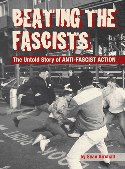About the IWCA
Background to the IWCA
Founding Statement
A Declaration of Independence
Frequently asked questions
Submit a question
Background to the IWCA
Once it became clear that New Labour intended to formally abandon a commitment to social equality and justice, and in anticipation of the anti-working class nature of any future New Labour administration, a variety of groups came together to discuss how the economic, social and political interests of the working class could be best protected.
The Independent Working Class Association (IWCA) was formed in October 1995 as a result of these discussions.
When New Labour was elected in May 1997, the IWCA responded by setting up a number of pilot schemes in selected places across the country. The emphasis at all times was on addressing the immediate interests of the working class in the locality in which the pilot scheme was based.
It was an approach that provided the IWCA with the opportunity to test its basic strategy on a range of issues. These included fighting council corruption in Hertfordshire, confronting a mugging epidemic in Birmingham, the privatisation of council housing in Islington, exposing the small print in the New Deal provisions in Hackney, highlighting the dangers of mobile phone masts in Manchester, sparking occupations against council closures in Glasgow, taking up the fight against antisocial crime in Havering, and confronting drug-dealing in Oxford.
In September 2001 the IWCA registered as a political party. In May 2002 Stuart Craft became the IWCA’s first elected representative after he was elected to Oxford City council. Elsewhere IWCA candidates ran the mainstream parties close, coming within 90 votes of claiming a seat in Hackney and taking an average of 25% of the vote in each ward contested.
Out of these experiences a political programme to address day to day concerns and the immediate needs of the working class has been constructed.
Founding Statement
The Independent Working Class Association has been established to promote and celebrate the political independence of the working class, and to pursue the political and economic interests of that class with no consideration for, and regardless of, the consequences to the existing political and economic structures.
October 21 1995
A Declaration of Independence
Discussions on the founding of the Independent Working Class Association started in the mid-1990s, following the removal of Clause Four from the constitution of the Labour Party. The analysis presented here, from October 1995, sets out the basis on which the new organisation was formed.
IWCA FAQs
Answers some of the most frequenlty asked questions about the IWCA are provided here
Submit a question
Send a question to us and we will reply individually to you. If the answer has not already been covered on this site, and is likely to be of interest to readers then we will post up the question and the reply here.



